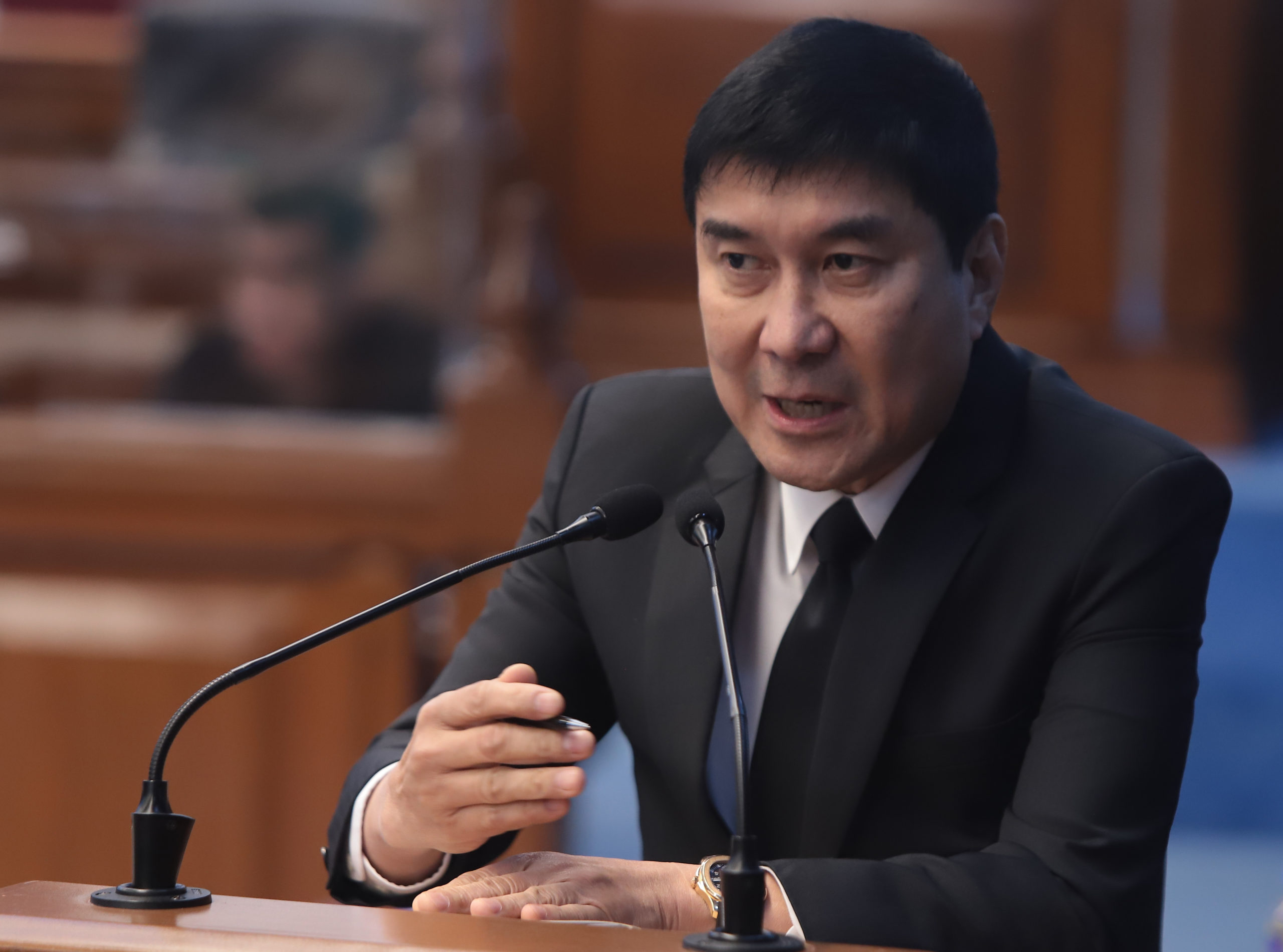Senator Tulfo on decriminalizing libel: No penalties for legit journalists

FILE PHOTO: Senator Raffy Tulfo during a hearing at the Senate on November 17, 2022. (Bibo Nueva España/Senate PRIB)
MANILA, Philippines —As a measure to calm concerns that decriminalizing libel could weaken the law, Senator Raffy Tulfo has proposed exempting only respectable journalists who are subject to accountability.
Tulfo brought up the suggestion during the hearing of the Senate Committee on public information and mass media, saying that while he has been supportive of decriminalizing libel to help his fellow media workers, totally removing criminal liabilities may bring problems as it can be abused.
“Regarding decriminalizing libel, that is my campaign promise, and I will walk the talk. However, my legislative group studied it and asked how about those without accountability. How about those who only want to be media people, open a channel on the internet, criticize all he wants without basis, and spread lies?” Tulfo asked, speaking in a mix of Filipino and English.
“Maybe we can exclude them from decriminalizing libel, but the traditional media, the true journalists […] we should not allow them to be jailed, we should decriminalize libel for them. Because, for one, it was a problem for me, I was not able to do what I have to do, expose who I need to expose because of a libel case,” he added.
Tulfo clarified that by “fake” journalists, he meant “hao-siao” journalists, whose sole motivation is to financially gain from the people they defame in articles and on air.
Article continues after this advertisementAccording to Tulfo, unlike these “hao-siao” reporters, legitimate journalists working for media companies have a system of fact-checking and accountability as information released is scrutinized.
Article continues after this advertisement“Having said that, I would still go for decriminalizing libel but maybe in certain groups, like for traditional who have accountability because I know, for example, in a newspaper […] there are desk editors, chief editors who filter, there are editors who vet the articles or videos released,” the Senator explained.
“Unlike with, for example, a certain Juan dela Cruz who wants to spread lies, opens up a channel, and that channel is only for attacking and collecting — there are many incidents of that on social media, those who are called attackers and collectors,” he added.
However, journalist and Vera Files founder Ellen Tordesillas questioned Tulfo’s description of “fake” reporters, saying that she does not consider such people — including bloggers — journalists.
“‘People who just post immediately, I don’t consider them journalists. Because blogging does not, posting on social media does not make one a journalist,” Tordesillas said.
“If you say you will provide protection for journalists, that does not include all those who make posts; that’s why I am saying it is not true that just because you post something, i-publish something on social media, you are a journalist already. I do not agree with that because to be called a journalist, one should adhere to the core values of journalism,” she added.
Tulfo, however, reasoned that some block timers — or people who buy time slots from radio or television networks — have started their careers as bloggers or vloggers and feel they have the right to criticize people despite not having the proper vetting process for their claims.
“So would you consider that as free speech when there is no accountability […] So she or he can spread lies as much as he or she wants, so that’s what we are studying about, that maybe we have people who can face criminal liabilities. But for media workers like you (Tordesillas) […] you are the reason why we should decriminalize libel,” he added.
When filed against journalists, libel and cyber libel are seen as oppressive as these hamper press freedom.
Journalists who have been sued for libel, such as Rappler’s CEO Maria Ressa, have spoken out against the practice, arguing that it is nothing more than an attempt to intimidate the news organization because of its criticism of the previous administration.
READ: Maria Ressa to elevate cyber libel case to Supreme Court
In 2013, the Bureau of Customs started a program to screen journalists who can enter the agency’s premises because “hao siao” reporters are believed to serve as middlemen or fixers for smugglers.
READ: Who’s ‘hao-siao’ or legit journalist? BOC confused